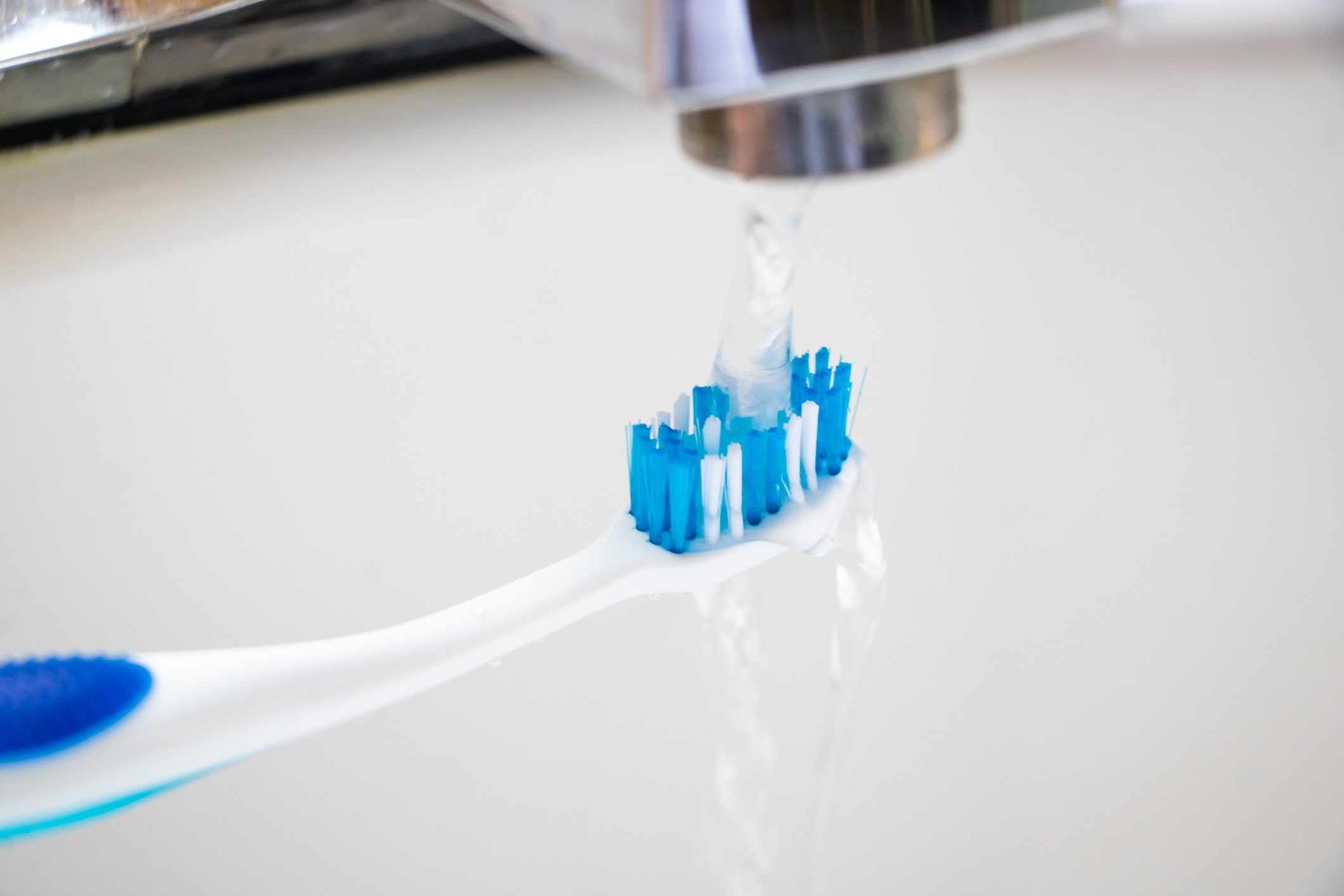By Erica Laceria on May 13, 2025 @ 10:15 AM
Fluoride in water, a long debated topic, is considered important for adults and especially children. It helps protect tooth enamel and stop tooth decay. The American Dental Association (ADA) says fluoride can prevent about 25% of tooth decay over your lifetime. That's why fluoride is also in most toothpastes.
Fluoride is a natural mineral that appears in water, soil, and a variety of foods. While most water naturally has some fluoride, the amount is usually too low to help prevent cavities.
When fluoride is absorbed in your digestive system, it gets stored in your bones and teeth, where it encourages new bone growth and makes your teeth stronger. This added strength helps keep tooth decay at bay.
Cities and local governments control how much fluoride is in their water supply, a process called water fluoridation. The CDC has online tools where you can see if your state participates in water fluoridation.
In addition to cities that have no fluoride or a low supply, you may not be getting enough fluoride for your teeth if you drink mostly bottled water or well water. With that in mind, we will be taking a deeper dive into the use of fluoride for oral health and how you can get enough supply.
Key Takeaways:
- Fluoride is crucial for preventing tooth decay, especially in children.
- Fluoride in water can reduce tooth decay by 25% over a lifetime, per the ADA.
- Fluoride is commonly found in toothpaste. However, those relying on well or bottled water may not receive adequate fluoride.
- If you use well water it should be tested for fluoride levels
- Consider taking supplements if your fluoride levels are low
- Consult with a dentist or physician to ensure proper fluoride intake.

Is Fluoride Safe?
If the fluoride in your drinking water is below 0.7 mg/L, you might want to consider adding more fluoride to your daily routine. It's safe to use fluoride when it's kept at this recommended level.
If fluoride levels go above 1.5 mg/L, they surpass the World Health Organization's (WHO) guidelines for drinking water. Too much fluoride can cause dental fluorosis, which is a cosmetic issue that discolors tooth enamel, and it might also lead to a bone condition called skeletal fluorosis.
One of the main concerns people have about fluoride in water is how it might affect children's cognitive development. The National Toxicology Program (NTP) took a closer look at the research and found that there isn't enough data to say if the recommended fluoride level of 0.7 mg/L in U.S. community water supplies impacts children's IQ. They suggest more research is needed, but they also found "no evidence that fluoride exposure had adverse effects on adult cognition."
Finally, there has been worry about the risk of cancer from fluoridated water. In 1991, a study found bone tumors (osteosarcomas) in male rats that drank water with high fluoride levels. However, many studies on people have been done since then, and they haven't found a strong connection between fluoride and cancer in humans.

Fluoride in Well Water
If you rely on well water, it's a good idea to check its fluoride levels each year. Sometimes, your well water might have too much or too little fluoride. If there's too much, don't worry—you can use a special filter to remove it, and there are plenty of options available. On the other hand, if there's not enough fluoride, you can't add it directly to well water, so you'll need to explore other sources.

How to Get More Fluoride
The CDC suggests that your dentist or doctor should check if daily fluoride supplements are needed. These supplements can be taken as a liquid or tablets, usually twice a day. For more information, visit the ADA's page on fluoride supplements.
When talking with your dentist or doctor, you might find out that you and your child might not need supplements if you're drinking tap water at work, school, or daycare. Your intake may also be high enough if you're a regular user of fluoride toothpaste.
In conclusion, knowing how fluoride helps keep your teeth healthy is important for everyone. Fluoride in water and toothpaste helps cut down the chances of tooth decay. It is key to make sure you're getting enough, especially if you mostly drink bottled or well water. By staying informed and taking action, you can keep your smile and your family's smiles bright and healthy. It also helps to have quality dental insurance for your routine checkups and office visits.
Want to have Solstice benefits? Call our sales team at 877.760.2247 or email Sales@SolsticeBenefits.com
Already have Solstice benefits? See your plan details by going to https://www.mysmile365.com/ or calling us at 1.877.760.2247.





comments